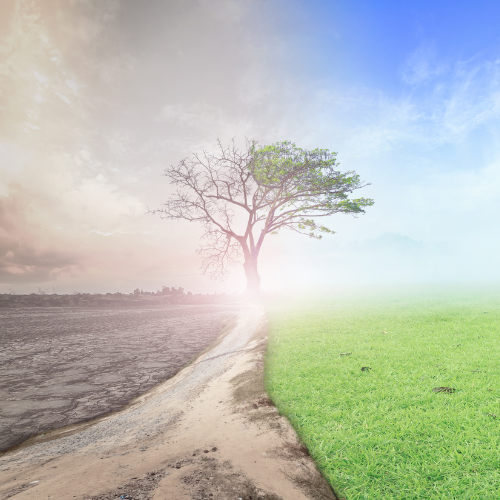The Environmental Toll on Our Mental Health: Understanding and Managing Eco-Anxiety
Eco-anxiety is a relatively new term that describes the worry and stress that people feel in response to environmental issues such as climate change, deforestation, and pollution. It’s a growing problem that affects people of all ages, and it’s not surprising considering the state of our planet today.
Let’s explore what eco-anxiety is, why it’s a concern, and what you can do to manage it.

What is Eco-Anxiety?
Eco-anxiety is the stress and worry that people feel when they think about the state of the planet and the impact of human activities on the environment. It can manifest in a variety of ways, including feelings of hopelessness, depression, and anxiety. For some people, it can be so severe that it affects their daily lives and well-being.
Why is Eco-Anxiety a Concern?
Eco-anxiety is a concern because it can have a negative impact on our physical and mental health. It’s not just about feeling sad or upset; it can lead to a range of physical symptoms such as headaches, muscle tension, and digestive problems. It can also affect our mental health, leading to depression, anxiety, and other mood disorders.
What Can You Do to Manage Eco-Anxiety?
If you’re feeling overwhelmed by eco-anxiety, there are several things you can do to manage it.
- Take Action
One of the best ways to manage eco-anxiety is to take action. You can join a local environmental group, volunteer for a clean-up, or donate to a conservation charity. Taking action can give you a sense of purpose and control, which can help reduce feelings of anxiety and hopelessness.
- Practice Self-Care
Self-care is essential when it comes to managing eco-anxiety. Make sure you’re taking care of yourself by getting enough sleep, eating a healthy diet, and exercising regularly. These activities can help reduce stress and improve your overall well-being.
- Limit Your Exposure to News and Social Media
Constant exposure to news and social media can contribute to feelings of eco-anxiety. It’s essential to stay informed, but it’s equally important to limit your exposure to negative news and social media posts. Try to take a break from news and social media when you’re feeling overwhelmed.
- Connect with Nature
Connecting with nature can help reduce feelings of eco-anxiety. Spend time outside, go for a hike, or just sit in the park and take in your surroundings. Connecting with nature can help you feel more connected to the planet and give you a sense of peace.
Eco-anxiety is a growing problem that affects people of all ages. It’s essential to take care of yourself and take action to help protect the planet. By practicing self-care, limiting your exposure to negative news and social media, and connecting with nature, you can manage your eco-anxiety and improve your overall well-being.
